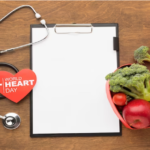
In the area of nutrition and health, the word “gluten” has gained popularity since many people think that staying away from it can improve their health. But what exactly is gluten, and why has it raised such a fuss? Simply said, gluten is a kind of protein that is present in grains including wheat, barley, and rye. It helps bread rise when baking and gives it its chewy texture. Several other foods, like pasta, beer, and even some types of sweets, also contain gluten.
The use of gluten-free diets has grown significantly in recent years, with many people now persuaded that doing so can aid in weight loss, better digestion, and even the relief of some medical diseases’ symptoms. Is this, however, actually the case? The facts regarding gluten and whether or not you should avoid it for greater health will be examined in more detail in this article. We’ll look at the advantages and dangers of gluten, the increase of gluten-free diets, and some practical advice for anyone who might be thinking about leading a gluten-free lifestyle. So settle back, unwind, and get ready to discover the gluten truth!
Describe gluten.
Wheat, rye, barley, and triticale all contain the kind of protein known as gluten. Because of it, dough is elastic and rises more during baking. Some people are unable to adequately digest gluten due to celiac disease or a non-celiac gluten sensitivity, an autoimmune illness that can result in a variety of health problems.
Advantages of Gluten
Despite the controversies surrounding it, gluten really contributes vital nutrients to the body and serves a crucial role in digestion. Additionally to helping with the absorption of crucial minerals like calcium and iron, gluten contributes to the structure of bread and other baked items. Additionally, gluten contains critical amino acids that the body needs for tissue growth and repair and is a source of protein.
Moderate gluten consumption may provide a number of advantages, including lower inflammation and better digestion. Consuming gluten can be a significant component of a balanced and healthy diet for people who do not have a sensitivity to or intolerance to it. People may choose their diets wisely if they are aware of how gluten functions in the body and any potential advantages of taking it.
Effects of Gluten
While many people can benefit from gluten, those who have celiac disease or gluten intolerance may potentially be at danger. When gluten is taken, the small intestine is attacked by the body’s immune system, causing inflammation and intestinal lining damage. This condition is known as celiac disease and is an autoimmune disorder. Bloating, pain in the abdomen, and weariness are just a few of the signs and symptoms of gluten intolerance, also known as non-celiac gluten sensitivity.
Consuming gluten can be harmful to one’s health and wellbeing if one has celiac disease or gluten intolerance. It’s crucial to be able to recognise gluten intolerance by keeping an eye out for the symptoms and consulting a medical expert to obtain a correct diagnosis. People with celiac disease or gluten intolerance can control their symptoms and keep their health by avoiding gluten.
Diet that excludes gluten
A gluten-free diet is one that forbids eating things like wheat, barley, and rye because they contain gluten. A gluten-free diet is necessary for those with celiac disease or gluten intolerance to manage their symptoms and stop further physical harm from occurring. However, some people could decide to be gluten-free for more individualised reasons, such as anticipated health advantages.
Foods that are naturally gluten-free, such as fruits, vegetables, meats, and dairy products, are among those that can be consumed on a gluten-free diet. However, it’s critical to be mindful of sources of gluten that are not readily apparent, such as sauces, condiments, and processed meals. It can be difficult to maintain a gluten-free diet that is nutritionally balanced because many gluten-free products may be deficient in specific nutrients. To maintain a well-rounded diet, it is crucial to incorporate a variety of nutrient-dense gluten-free meals and take supplements into account as needed.
The Gluten and Health Facts
The connection between gluten and health is a complicated and hotly contested subject. Although there is some scientific evidence connecting gluten to health problems including celiac disease and gluten intolerance, more research is still being done on the overall effects of gluten on health. When making dietary decisions, it’s crucial to review the existing research and take each specific issue into account.
While a gluten-free diet may be required for people with celiac disease or gluten intolerance, there is little proof that following a gluten-free diet has any positive effects on overall health. In actuality, a gluten-free diet may come with dangers like vitamin shortages and an increase in processed food intake. It’s crucial to think about individualised nutrition and make dietary decisions based on personal preferences and demands.
Conclusion
Finally, the subject of gluten and its effects on health is intricate and complicated. While some people need gluten and it can offer vital nutrients, it can also be dangerous for people who have celiac disease or gluten sensitivity. The popularity of gluten-free eating plans has both advantages and disadvantages; while some people report improved health, others may suffer from dietary inadequacies.
It is crucial for anyone thinking about a gluten-free diet to first see a healthcare provider and take into account specifics including personal health objectives, possible dangers, and dietary requirements. A gluten-free diet might be a good alternative for people who have celiac disease or gluten intolerance, even if it may not be required or advantageous for everyone.
Overall, the relationship between gluten and health is complex and calls for careful evaluation on an individual basis. People may make the optimal nutritional decisions for their health and wellbeing by being informed and basing those decisions on their own needs and preferences.
Read More You May Like:
- 10 Science-Backed Ways to Boost Your Metabolism and Lose Weight
- Eating for Energy: The Top Foods and Nutrients to Boost Your Vitality
- How to Beat Sugar Cravings: Tips and Tricks to Break the Cycle
- Intermittent Fasting: The Ultimate Beginner’s Guide to Losing Weight and Improving Health
- Mediterranean Diet: A Delicious and Healthy Way to Eat for Life








